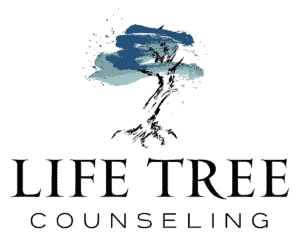Diagnosis of ADD and ADHD through observable symptoms has been and continues to be the most widely used method. Noting common behaviors such as forgetfulness, poor performance in school, distractibility, impulsivity, difficulty following directions, and poor time management were utilized to determine the presence of ADD and to determine one of three possible forms:
- Inattentive
- Hyperactive
- Or Both
For many years, the diagnosis of ADHD was decided by symptoms displayed before age six. Consequently, there was less concern about identifying the symptoms for older adolescents and adults. Although the symptoms method of diagnosing ADHD continues to be the common practice, it is now becoming just the first level of diagnostics.
Diagnosis Background of ADHD
Researchers in the ADHD arena were not satisfied with the variations in accuracy that existed with the use of questionnaires, surveys, and behavioral observations. As the field of neuroscience exploded, the mysteries surrounding ADHD began to be viewed in a new light. In May 2013, The American Psychiatric Association’s Diagnostic and Statistical Manual, Fifth edition (DSM-5) used by mental health professionals to help diagnose ADHD introduced new criteria and classification of ADHD as a neurocognitive disorder. Changes in the diagnosis of ADHD included the new understanding that symptoms that occur by age 12 rather than by age 6 should be considered for adolescents. With the awareness that symptoms for adolescents at age 17 and older and for adults may appear differently, the DSM added descriptions to assist in the diagnosis that may occur later in life.
ADHD: The Second Level of Diagnosis
Scientists have also developed a second level of diagnostic tools to further the understanding of ADHD. Neurocore, a program specializing in data driven, brain based diagnostics and treatments, utilizes EEG technology to study the patterns of brainwave activity as a means to diagnose ADHD. The company describes the approach as being focused on the cause of the issues rather than mere symptoms. NEBA Health of Augusta, Georgia has developed an EEG-Based Assessment Aid. The system calculates the ratio between the brain’s theta and beta waves. NEBA concludes:
“While the new system can help identify those with such brain wave ratios, the diagnosis of ADHD still needs a combination of objective and subjective findings for an accurate conclusion.”
Use of a functional MRI, a sophisticated brain imaging technique, is also being considered as an additional level of diagnostics for ADHD. These new developments for the diagnosis of ADHD are certainly exciting and appear to provide valuable information to understanding ADHD.
Identifying ADHD Symptoms Impact
With the availability of two levels of diagnostics, a person may choose the degree of specificity that would be beneficial. Often for children, parents would like more certainty about the diagnosis before beginning a managed medication program. When a person is in an educational setting, a complete psycho-educational battery of testing provides critical information that can be used to assess learning strengths and weaknesses.
With this type of information, a learner can adapt to the educational system by using specific strategies tailored to the individual’s learning style. An adult ADHD diagnosis would include the history of onset and persistence of symptoms. With greater self-awareness and life experiences, adults are able to identify the impact the symptoms have on managing life, information that is critical in diagnosing adult ADHD.
The prevailing conclusion about diagnosing ADHD is that diagnosis by symptom will continue to be the first step. The additional avenues that are emerging for diagnostics of children and adult ADHD certainly provide a form of confirmation and another level of understanding of the neurocognitive functions.
Need to talk? Our counselors are flexible with their schedules and some even work weekends! Call us right now at 972-234-6634. We’ll return your call within 60 minutes (really!), or you can schedule an appointment using our online appointment system. We do look forward to meeting you.
